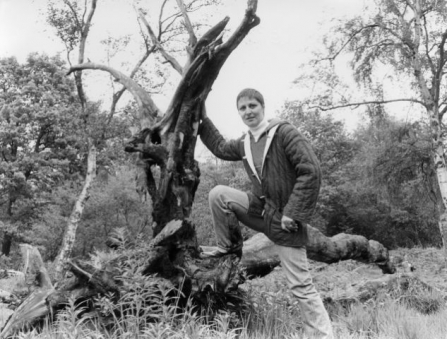
Credit: @WTBBC
Joy Fifer was the founder of the urban conservation movement and without her The Wildlife Trust for Birmingham and the Black Country wouldn’t exist.
Moseley Bog was the childhood playground of The Lord of the Rings author JRR Tolkien, who lived nearby. He stated that the site inspired the 'old forest' in his books. People come from all over the world to discover his inspiration for themselves.
In 1980 plans were announced to build 22 detached houses on Moseley Bog. This sparked local resident Joy Fifer to start the ‘Save Our Bog’ campaign. As a direct result of Joy’s campaign in 1986 Birmingham City Council prevented the development by purchasing a section of the land.
The following year volunteers planted trees and wildflower seeds and in 1999 the area of meadow, hedgerow and woodland next to the Bog was named Joy’s Wood after Joy Fifer. Joy was awarded a "Supermillenium Hero of Moseley" award by the Lord Mayor of Birmingham in 2000 and the MBE in 2001 in recognition of her services to nature conservation. Even more amazing, Joy did all this whilst suffering 15 years of serious illness leading to a lung transplant in August 2001. Although she recovered from the operation she sadly passed away two years later.
